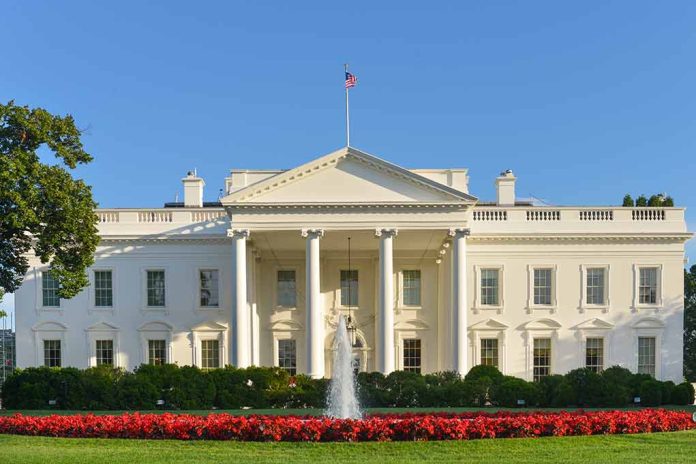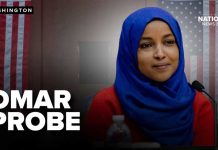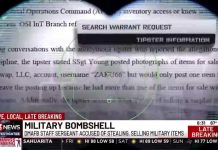
President Donald Trump has just signed an executive order mandating proof of citizenship for voter registration that could fundamentally reshape America’s election systems while setting the stage for significant legal battles.
Key Takeaways
- Trump’s executive order requires documentary proof of citizenship to register to vote in federal elections and mandates all ballots be received by Election Day.
- States not adopting these tougher voter registration standards risk losing federal grant funding.
- The order directs the Election Assistance Commission to amend voting system guidelines, specifically prohibiting barcodes and QR codes in vote counting.
- Legal challenges are expected from Democrats who view it as federal overreach into state election authority.
New Voter Registration Requirements
The executive order signed by President Donald Trump aims to implement sweeping changes to America’s voter registration process. Chief among these is the requirement that individuals provide documentary proof of citizenship when registering to vote in federal elections. This represents a significant departure from current practices in many states where self-attestation of citizenship is often sufficient. The order also mandates that all ballots must be received by Election Day nationwide, eliminating the practice in some states of counting ballots that arrive days after the election as long as they were postmarked by Election Day.
The administration asserts these changes are necessary because federal election requirements, including prohibitions on counting ballots received after Election Day and preventing non-citizens from registering to vote, have been inadequately enforced. The most consequential aspect of the order may be its mechanism for enforcement: states that fail to comply with these new standards risk losing federal grant funding, creating a powerful financial incentive for adoption.
Trump signs executive order to toughen voter registration standards https://t.co/Cm0bgDaSCf pic.twitter.com/1Fsjf3HFmB
— American Military News (@AmerMilNews) March 27, 2025
State Cooperation and Financial Implications
The executive order calls for states to collaborate with federal agencies in sharing voter lists and prosecuting election crimes. This includes cross-referencing voter rolls with federal immigration and citizenship databases to identify potential non-citizens. States that fail to implement these measures and others outlined in the order could see significant reductions in federal funding. Critics argue this approach could cost state taxpayers tens of billions of dollars to implement the required systems and verification processes.
The order also instructs the Election Assistance Commission to amend voting system guidelines to protect election integrity, specifically prohibiting the use of barcodes or QR codes in vote counting. This requirement creates uncertainty for states like Georgia that currently use voting machines with QR codes, potentially forcing expensive equipment replacements or modifications to comply with the new federal standards.
Criticism
Trump’s order hasn’t been well-received by everyone. Critics argue the president is bypassing Congress and overreaching into areas traditionally managed by state governments.
Democrats and voting rights advocates have strongly criticized the order, with Democratic attorney Marc Elias threatening legal action. Critics argue the requirements bypasses Congress and could disenfranchise millions of eligible voters who lack ready access to proof of citizenship documents. Senator Alex Padilla stated the order “does nothing to improve the safety of our federal elections — what it would do is disenfranchise millions of eligible American voters.”
Looking Ahead: Impact and Implementation
As states digest the requirements of this executive order, many questions remain about implementation timelines and the specific mechanisms for enforcement. The order represents the fulfillment of campaign promises by Trump, and his administration has indicated this is just the first in a series of planned election-related actions. With legal challenges expected from multiple states and organizations, the ultimate impact of this order remains uncertain pending judicial review.
This approach tests the boundaries between executive and legislative authority while highlighting the ongoing partisan divide over election administration in America. The coming months could see legal battles that will shape the future of federal involvement in state-run elections for years to come.
Sources
- Trump signs executive order to toughen voter registration standards
- Trump aims to overhaul U.S. elections in executive order with new requirements
- Trump has signed an executive order overhauling elections. Here’s what it means













